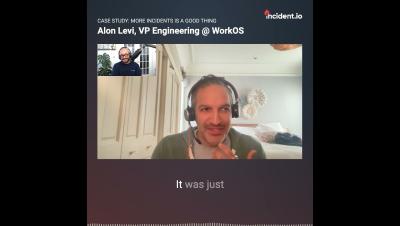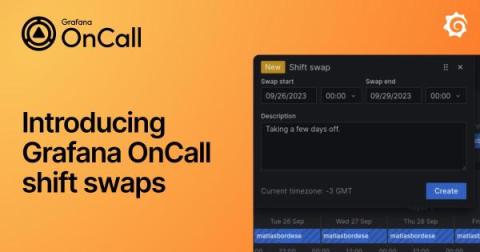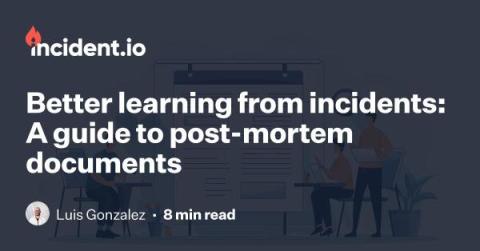Operations | Monitoring | ITSM | DevOps | Cloud
Incident Management
The latest News and Information on Incident Management, On-Call, Incident Response and related technologies.
How incident.io's intuitive UI is great for non-technical responders
How WorkOS has benefitted from incident.io's high-quality support
Blameless Announces New Google Docs and Google Drive Integration to Help Engineering Teams Enhance Their Incident Management and Retrospectives
Unveiling Past Incidents: Accelerating Incident Resolution with Historical Context
Product Spotlight: Enhancing Incident Resolution with Blameless' Microsoft Teams Integration
Introducing Grafana OnCall shift swaps: A simpler way to exchange on-call shifts with teammates
A family member’s birthday, that concert you’ve waited all year to see, an impromptu weekend getaway with friends — there are a lot of reasons software engineers might want to switch on-call shifts. And rather than have to frantically send Slack messages to your teammates, wouldn’t it be nice to automate the process and quickly find the coverage you need?
Better learning from incidents: A guide to incident post-mortem documents
If you’re just starting out in the world of incident response, then you’ve probably come across the phrase “post-mortem” at least once or twice. And if you’re a seasoned incident responder, the phrase probably invokes mixed feelings. Just to clarify, here, we’re talking about post-mortem documents, not meetings. It’s a distinction we have to make since lots of teams use the phrase to refer to the meeting they have after an incident.











